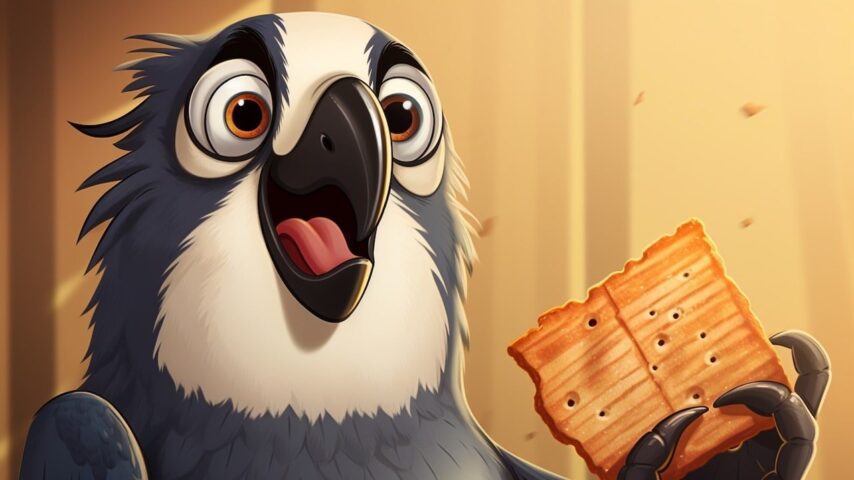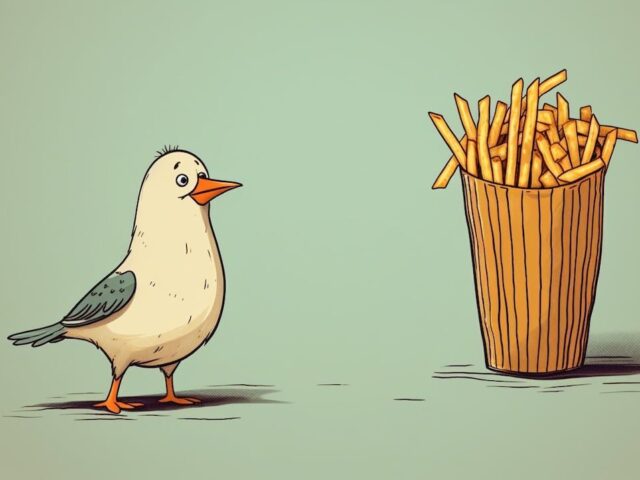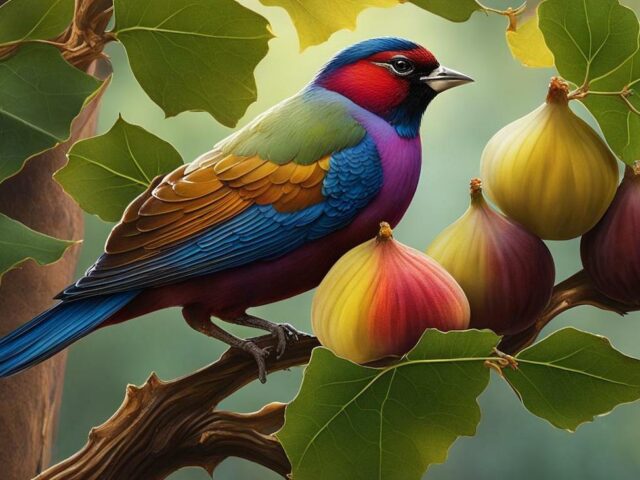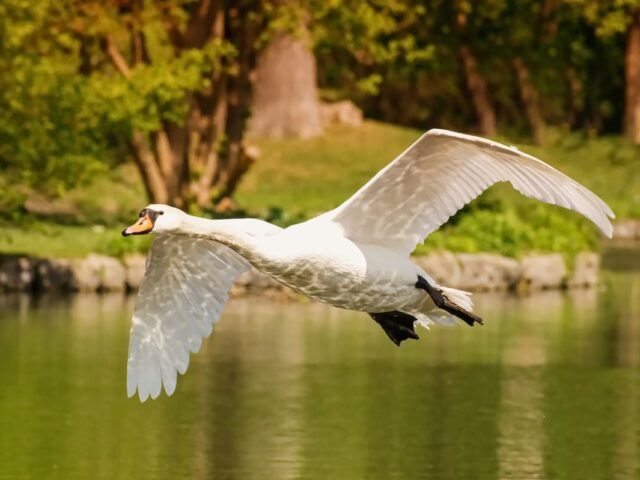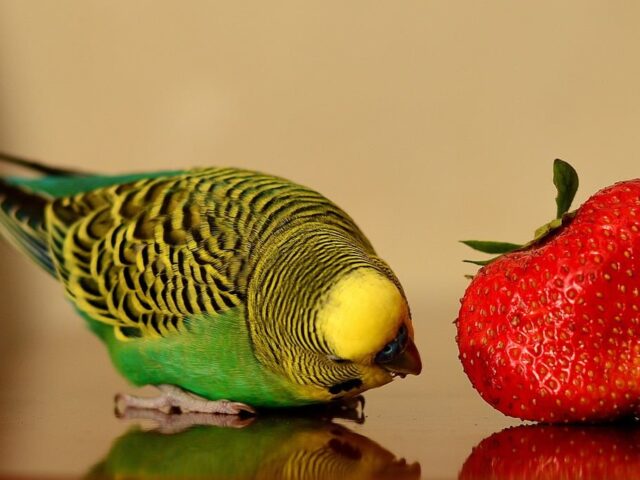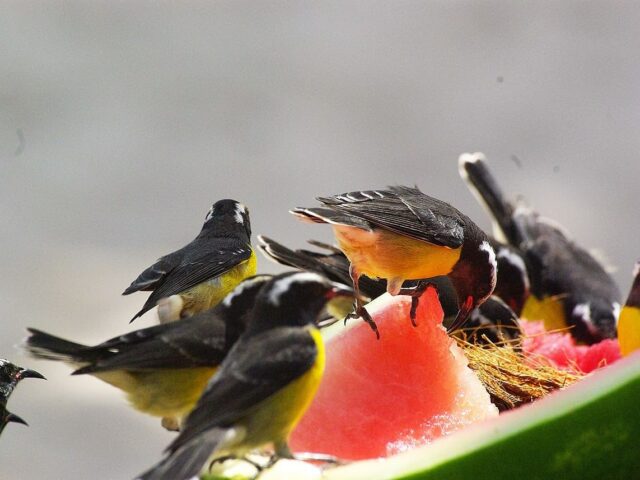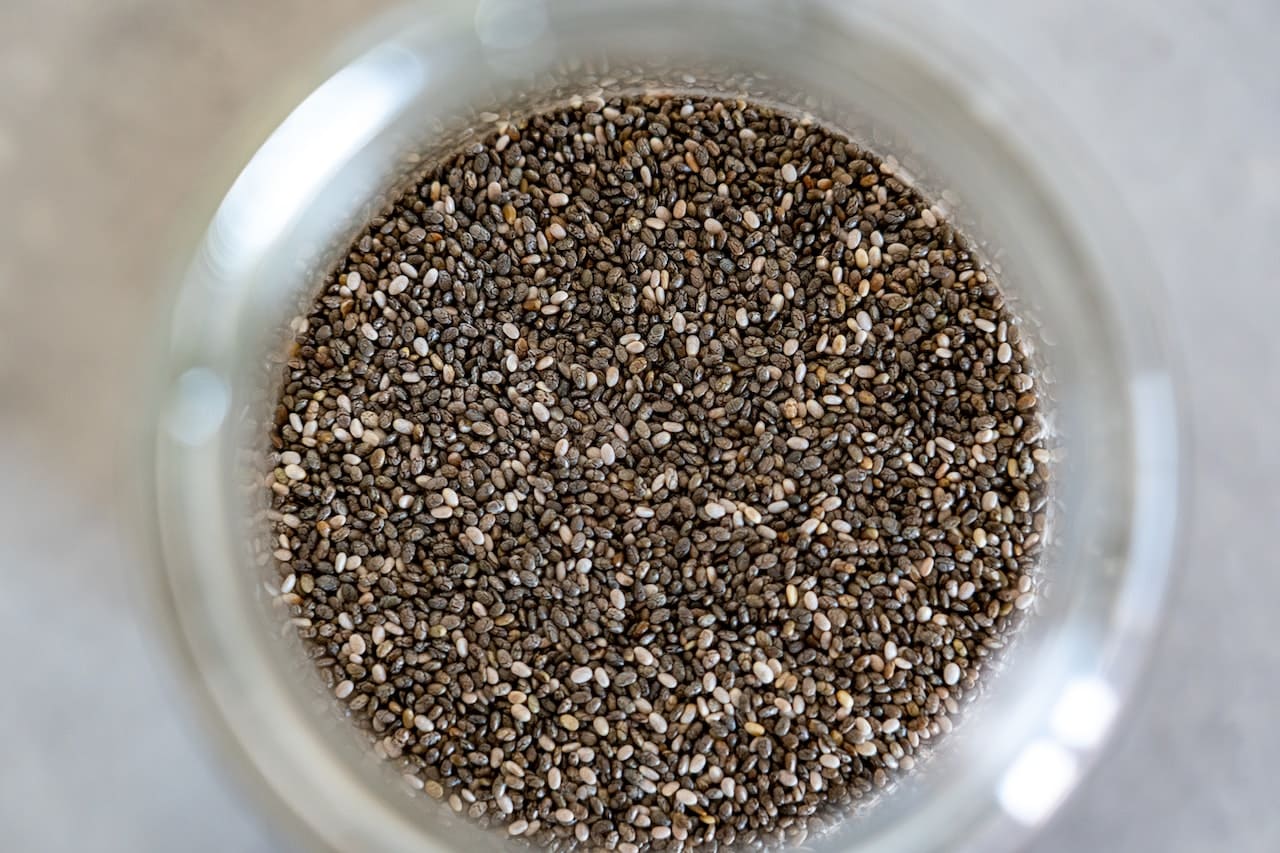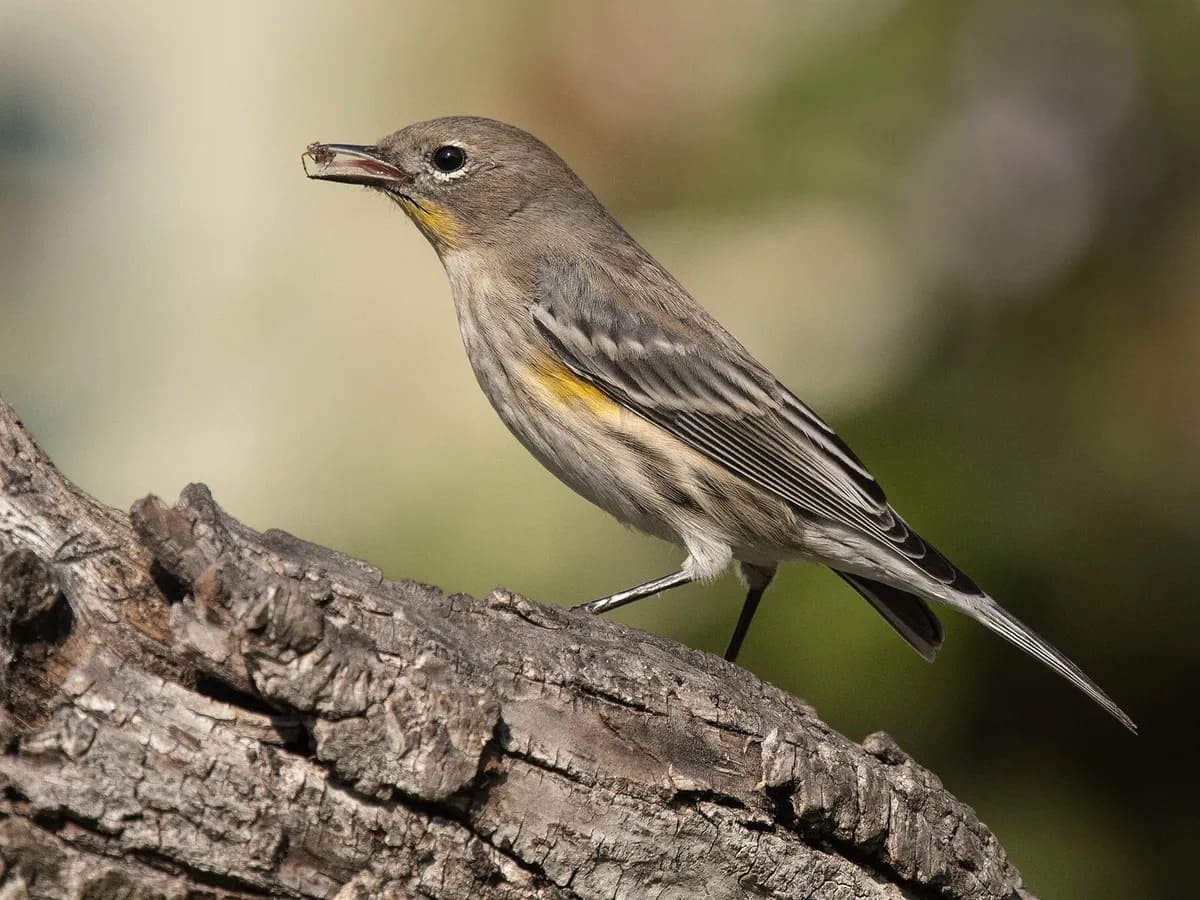Birds can eat crackers, but it’s important to keep in mind that crackers should not be a staple in their diet. As with any food, crackers should be offered in moderation and with consideration to the bird’s dietary needs.
Crackers with harmful additives such as chocolate and salt should be avoided, as these can lead to digestive issues or even poison birds. Excessive amounts of crackers in a bird’s diet can also lead to nutritional imbalances and health issues.
However, if you do choose to offer crackers as a treat, make sure to break them into small pieces and offer them in moderation. It’s also advisable to offer healthier alternatives such as fresh fruits, vegetables, seeds, nuts, or commercial bird food.
In addition, kitchen scraps such as stale bread, donuts, cakes, cookies, and crackers can be given to backyard birds as treats, but they should not replace regular birdseed. Other suitable scraps include cheese, pasta, rice, vegetables, meat, pet food, fruits, cereal, nuts, and eggs.
Scraps can be offered on platform feeders, hanging cage feeders, or mixed into suet recipes. However, it’s important to be mindful of pests, rotting, and poor nutrition when feeding scraps to birds.
Table of Contents
Key Takeaways
- Birds can eat crackers, but they should be offered in moderation and with consideration to the bird’s dietary needs.
- Avoid crackers with harmful additives such as chocolate and salt.
- Excessive amounts of crackers can lead to digestive issues and nutritional imbalances.
- Healthier alternatives to crackers include fresh fruits, vegetables, seeds, nuts, or commercial bird food.
- Kitchen scraps can be given to backyard birds as treats, but they should not replace regular birdseed.
- Scraps can be offered on platform feeders, hanging cage feeders, or mixed into suet recipes, but be mindful of pests, rotting, and poor nutrition.
Are All Crackers Safe for Birds?
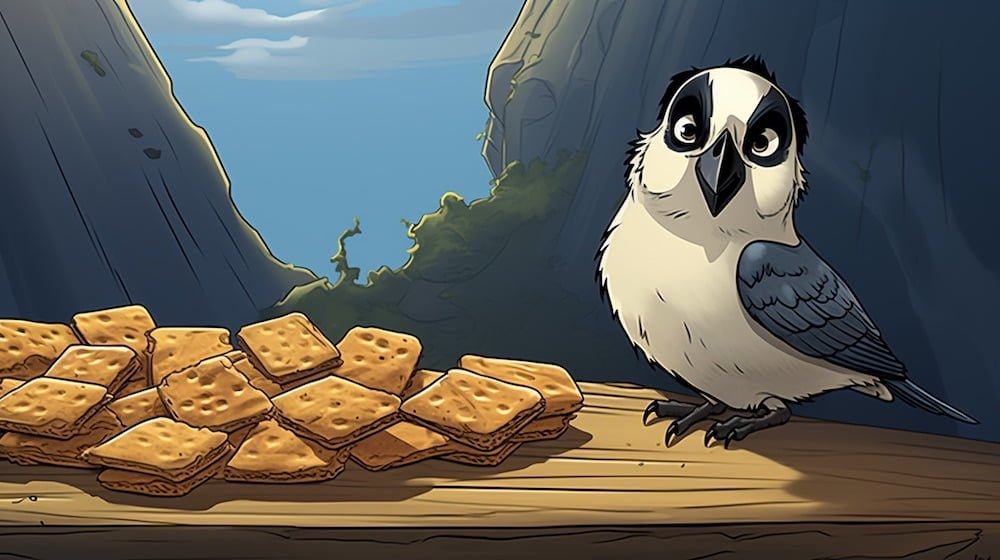
Crackers may make a tasty snack for birds, but it’s important to be cautious about the ingredients. Crackers with chocolate, salt, or other harmful additives should be avoided, as they can be harmful to birds.
Feeding excessive amounts of crackers can lead to digestive issues and nutritional imbalances. If offering crackers, it’s best to break them into small pieces and offer them in moderation. Instead, it’s advisable to offer fresh fruits, vegetables, seeds, nuts, or commercial bird food as healthier alternatives.
It’s important to note that feeding birds crackers, no matter how safe they are, should not replace regular birdseed. Crackers should be given as a treat in moderation.
When feeding scraps to birds, it’s important to be mindful of pests, rotting, and poor nutrition. Suitable kitchen scraps include cheese, pasta, rice, vegetables, meat, pet food, fruits, cereal, nuts, and eggs.
These scraps can be offered on platform feeders, hanging cage feeders, or mixed into suet recipes. Always remember that scraps should not replace regular birdseed.
It’s important to keep in mind that while crackers can be a fun treat for birds, it’s best to offer them in moderation and be cautious of the ingredients. By offering a variety of foods and treats, you can keep your feathered friends happy and healthy.
Potential Issues with Feeding Crackers to Birds
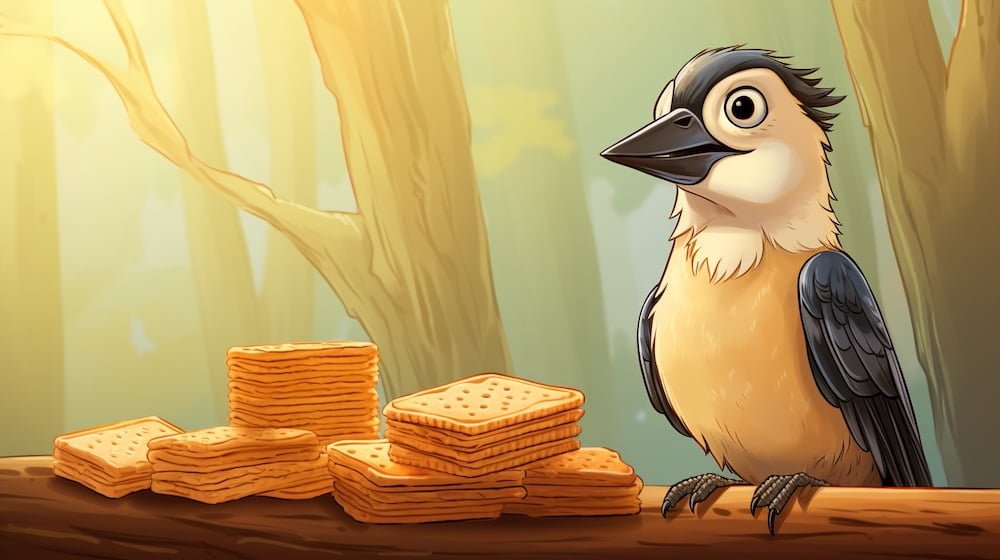
Feeding birds crackers can be a simple and convenient option for bird owners, but it’s important to be mindful of the potential issues that can arise. Feeding excessive amounts of crackers to birds can lead to digestive issues and nutritional imbalances.
Crackers with chocolate, salt, or other harmful additives should be avoided as they can cause serious health problems for birds. These ingredients can cause digestive issues, dehydration, and even death in birds. It’s best to offer crackers with natural ingredients in moderation.
Additionally, crackers should not replace a balanced diet for birds. Fresh fruits, vegetables, seeds, nuts, or commercial bird food are healthier alternatives to crackers that can provide the necessary nutrients for bird health. If offering crackers, break them into small pieces and offer them sparingly.
It’s also worth noting that feeding kitchen scraps to birds can be a fun and rewarding activity, but it’s important to be cautious. Scraps should not replace regular birdseed, and care should be taken to avoid offering items that are harmful to birds.
Cheese, pasta, rice, vegetables, meat, pet food, fruits, cereal, nuts, and eggs are all suitable scraps to offer birds, but they should be offered in moderation and with consideration for pests, rotting, and poor nutrition.
Healthier Alternatives for Birds
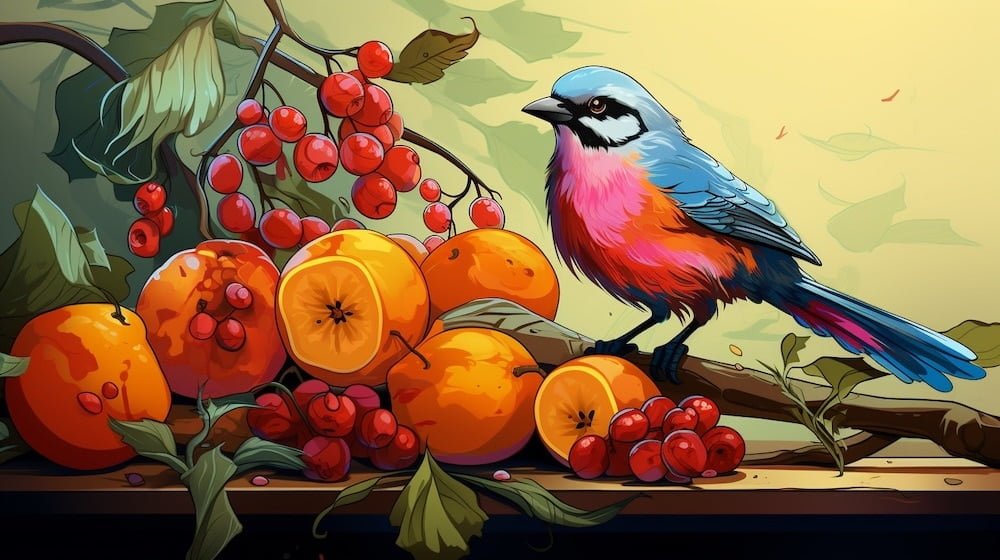
It’s advisable to offer fresh fruits, vegetables, seeds, nuts, or commercial bird food as healthier alternatives to crackers. Birds need a varied diet to meet their nutritional needs and stay healthy.
Fresh produce like apples, oranges, grapes, carrots, and leafy greens can provide essential vitamins and minerals. Seeds and nuts like sunflower seeds, pumpkin seeds, almonds, and peanuts can also be offered in small amounts as a source of protein and healthy fats. Commercial bird food can be a convenient option that is specifically formulated to meet birds’ dietary needs.
If offering crackers, break them into small pieces and offer them in moderation. Avoid crackers with chocolate, salt, or other harmful additives that can be toxic to birds.
Feeding Scraps to Birds
Kitchen scraps such as stale bread, donuts, cakes, cookies, and crackers can be given to backyard birds as treats, but they should not replace regular birdseed. Offering scraps in moderation can provide variety and enrichment to a bird’s diet, but excessive consumption can be harmful.
Other suitable scraps for birds include cheese, pasta, rice, vegetables, meat, pet food, fruits, cereal, nuts, and eggs. However, it’s important to avoid offering spoiled or mouldy food, which can cause health problems.
When feeding scraps to birds, it’s important to consider the types of scraps and the feeding mechanisms. Scraps can be offered on platform feeders, hanging cage feeders, or mixed into suet recipes. However, it’s important to be mindful of pests, rotting, and poor nutrition when feeding scraps to birds.
By offering a variety of fresh fruits, vegetables, seeds, nuts, or commercial bird food and supplementing with occasional scraps, backyard birds can have a healthy and varied diet that meets their nutritional needs. Enjoy watching them happily peck away at their treats!
Final Thoughts on “Can Birds Eat Crackers?”
While birds can eat crackers, it’s important to be mindful of the ingredients, feed them in moderation, and provide healthier alternatives to ensure their overall well-being. Crackers with harmful additives such as chocolate or salt should be avoided, and excessive consumption can lead to digestive issues and nutritional imbalances.
Instead, consider offering fresh fruits, vegetables, seeds, nuts, or commercial bird food as healthier alternatives. If offering crackers, break them into small pieces and offer them in moderation.
Kitchen scraps such as stale bread, donuts, cakes, cookies, and crackers can be given to backyard birds as treats, but they should not replace regular birdseed. Other suitable scraps include cheese, pasta, rice, vegetables, meat, pet food, fruits, cereal, nuts, and eggs.
Scraps can be offered on platform feeders, hanging cage feeders, or mixed into suet recipes. However, it’s important to be mindful of pests, rotting, and poor nutrition when feeding scraps to birds.
FAQs
Yes, birds can eat crackers, but it’s important to be cautious about the ingredients and offer them in moderation.
Not all crackers are safe for birds. Crackers with chocolate, salt, or other harmful additives should be avoided.
Feeding excessive amounts of crackers can lead to digestive issues and nutritional imbalances for birds.
It’s advisable to offer fresh fruits, vegetables, seeds, nuts, or commercial bird food as healthier alternatives to crackers.
Yes, kitchen scraps such as stale bread, donuts, cakes, cookies, and crackers can be given to backyard birds as treats, but they should not replace regular birdseed.
Scraps can be offered on platform feeders, hanging cage feeders, or mixed into suet recipes for birds to enjoy.
It’s important to be mindful of pests, rotting, and poor nutrition when feeding scraps to birds.
Read More Stories:

